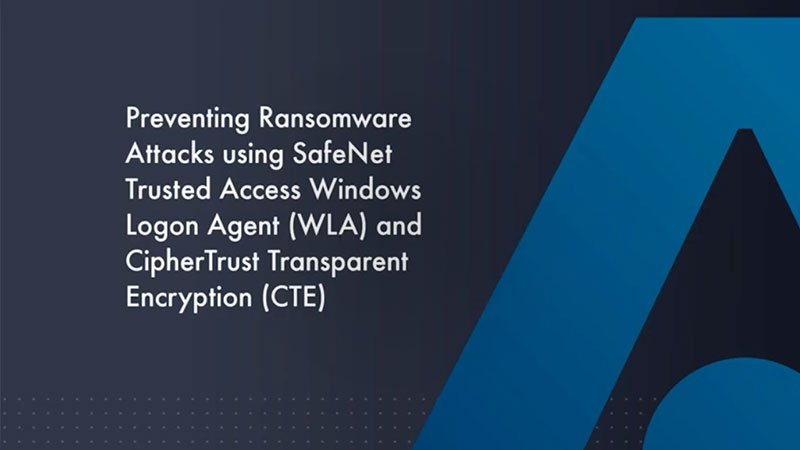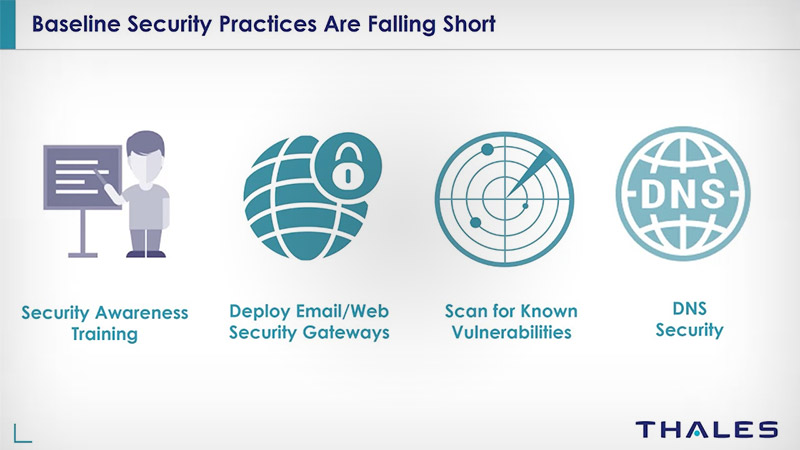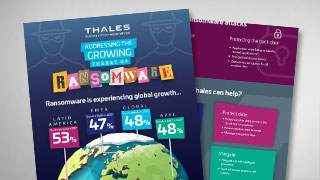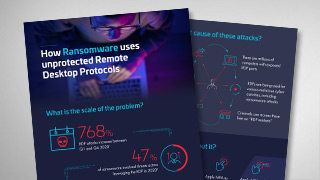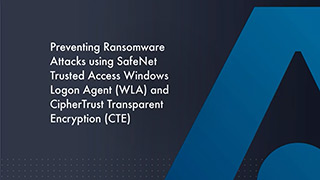Ransomware attacks
Ransomware, in a nutshell, is a vicious type of malware that cybercriminals use to block access to your entire system or specific sensitive files/databases, until you or your company pays a ransom. It is a form of cyber extortion. Some victims get two ransom notes. One ransom payment to prevent cybercriminals from disclosing the sensitive data they have stolen before encrypting it. The second ransom payment to get cybercriminals to hand over the decryption key, for the victim to gain back access to their data. This is a form of double extortion.
Ransomware gangs have targeted critical infrastructure, meat processing plants and massive supply chain attacks on Solarwinds more recently, which have led to data theft and forced shutdown of operations in large enterprises. Unfortunately, ransomware is a complex cybersecurity problem with no silver bullet to address this menace.
Thankfully, the National Institute of Standards and Technology (NIST) have released guidance on identifying and protecting assets against ransomware. The Cybersecurity Special Publication (SP) 1800-25 lays out the steps to having a comprehensive strategy around protecting assets.
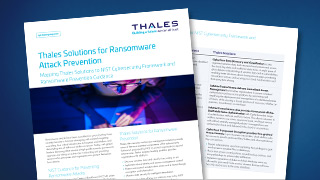
NIST Cybersecurity Framework and Ransomware Guidance
America’s National Cybersecurity Center of Excellence (NCCoE) under the auspices of NIST recently released its ransomware guidance to protect assets against ransomware attacks. Discover how the Thales data security and access management solutions map to the NIST cybersecurity framework and ransomware guidance
Protecting your front door
Cybercriminals typically use Remote Desktop Protocol (RDP) to gain administrative access to the front door, using a brute-force method of trying various passwords (dictionary attack) or they can use stolen credentials purchased on the Dark Web. There are millions of computers with exposed RDP service online without any protection.
Implement strong authentication, access and identity management
Thales' SafeNet Trusted Access offers multi-factor authentication at all login entry points protecting enterprise IT, web and cloud-based applications from internal and external threats at the front door. STA utilises policy-based conditional access, rigorous single sign-on (SSO), multi-factor authentication (MFA) and universal authentication methods, which prevent breaches, simplifies regulatory compliance and enables enterprises to migrate securely to the cloud.
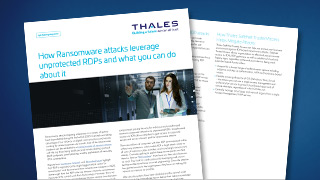
How Ransomware attacks leverage unprotected RDPs and what you can do about it
Ransomware attacks targeting enterprises in a variety of sectors have skyrocketed during the first half of 2020. Criminals are taking advantage of our reliance on digital communications and remote working for sinister purposes. As a result, most of the ransomware incidents can be attributed to a limited number of intrusion vectors, with the top three being badly secured remote desktop protocol (RDP) endpoints, email phishing, and the exploitation of zero-day VPN vulnerabilities.
Protecting your Back door
Cybercriminals typically use Remote Desktop Protocol (RDP) to gain administrative access to the front door, using a brute-force method of trying various passwords (dictionary attack) or they can use stolen credentials purchased on the Dark Web. There are millions of computers with exposed RDP service online without any protection.
Safeguard data-at-rest from ransomware attacks
CipherTrust Transparent Encryption is one of the widely deployed data protection products within the CipherTrust Data Security Platform. It provides application whitelisting, fine-grained access control and data-at-rest encryption, enabling organisations to prevent ransomware attacks at the back door. It protects both structured and unstructured data with policy-based access controls to files, volumes, databases, containers, big-data wherever it resides on-premises and in hybrid cloud environments.
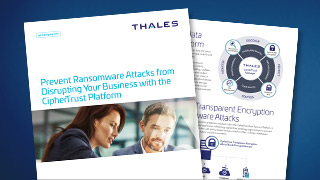
Prevent Ransomware Attacks from Disrupting Your Business with CipherTrust
Ransomware is a vicious type of malware that cybercriminals use to block companies and individuals from accessing their business-critical files, databases, or entire computer systems, until the victim pays a ransom. It is a form of cyber extortion. In fact, double and triple extortion attacks are occurring more and more where not only is the data encrypted, the data is exfiltrated, and/or used for targeted attacks on customers listed within the stolen data.
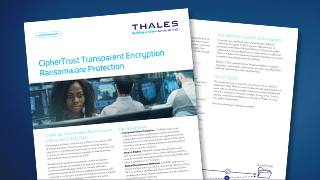
CipherTrust Transparent Encryption Ransomware Protection
Ransomware has been on the rise since 2020. It accounts for 25% of all data breaches. Ransomware attacks can bring business operations to a grinding halt by blocking access to critical data until a ransom is paid. A ransomware is expected to strike businesses and individuals every 2 seconds by 2031. Baseline security practices using perimeter controls such as next generation firewalls, secure email/web gateways and focusing on closing vulnerability gaps alone have not been sufficient to prevent ransomware attacks. The main challenge facing Fortune 500 companies is to safeguard business critical data from being encrypted by unauthorized processes and users on endpoints and servers.
Other Thales Solutions

Identify and classify vulnerable sensitive data across hybrid IT
CipherTrust Data Discovery and Classification, part of the CipherTrust Data Security Platform locates regulated sensitive data, both structured and unstructured, across the cloud, big data and traditional data stores.
Learn more about sensitive data discovery and classification

Protect data in transit with Thales High Speed Encryptors
Thales High Speed Encryptors offer the ideal certified and proven solution for data-in-motion security, including time-sensitive voice and video streams, for enterprise and government organisations.

